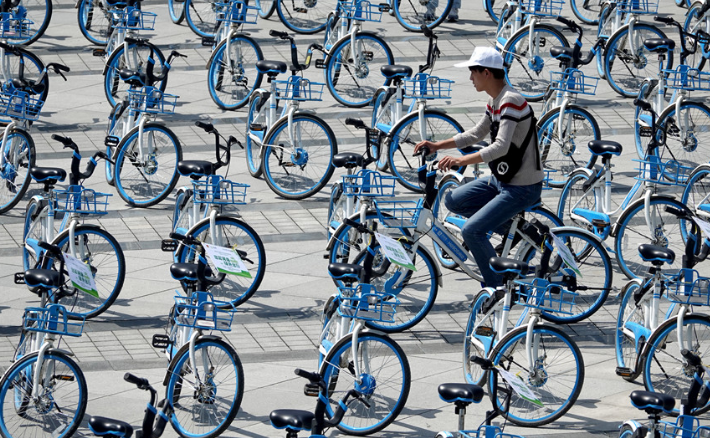Entrepreneur's idea sees rural children in Myanmar hit the saddle


With many Chinese cities looking to get rid of redundant bikes, an entrepreneur from Myanmar has offered a solution to put them to better use - donating them to rural children in his country.
Since June, Than Tun Win, 33, has bought 10,000 oversupplied shared bikes, reassembled them and distributed them to poor students in villages as part of a project called LessWalk.
He said he first had the idea when oBike went into liquidation last year.
Seeing that many bikes had been dumped and left to rust, he recalled long lines of students walking considerable distances from their villages to reach schools in rural areas of Myanmar.
In March, news that China's two biggest bike-sharing companies, Ofo and Mobike, were shutting down their global operations reached Than, making him realize that millions of bikes could be left abandoned.
He decided to make a move, posting requests for help on social media, looking to get connected with the two companies or anyone who could help him prevent the bikes being wasted, and instead going to those who really need them.
"I need to make this first world problem into a third world solution," he said.
Than decided to turn to new bikes that were for sale and housed in warehouses in countries such as Singapore and Malaysia after the two companies withdrew from those markets. At the end of April, the first 3,300 of the 10,000 bikes he bought arrived in Yangon, Myanmar.
About two years ago, bike sharing was still popular among venture capitalists, with more and more players competing with one another for bikes and by offering lower deposits for rides.
With far too many bikes jamming the streets, China began restricting their number and asked companies to recycle those that were damaged.
At the end of last year, many cities launched a campaign to remove bikes from their streets. For example, Taiyuan, capital of Shanxi province, has cleared some 70,000 bikes since the campaign began.
By June 17, Beijing had recycled 195,000 damaged or abandoned bikes after a special monthlong clear-up campaign, and Nanjing, capital of Jiangsu province, is expected to recycle more than 100,000 bikes before next month, according to the respective local governments.
Ofo and Mobike have both announced that they will cooperate with renewable resources companies to turn parts from abandoned bikes into other products. However, the number of so-called bike graveyards remains a major waste problem.
Now, with LessWalk in progress, Than said he hopes his project will inspire more people to set up similar ventures that help transform urban trash into opportunities.




































